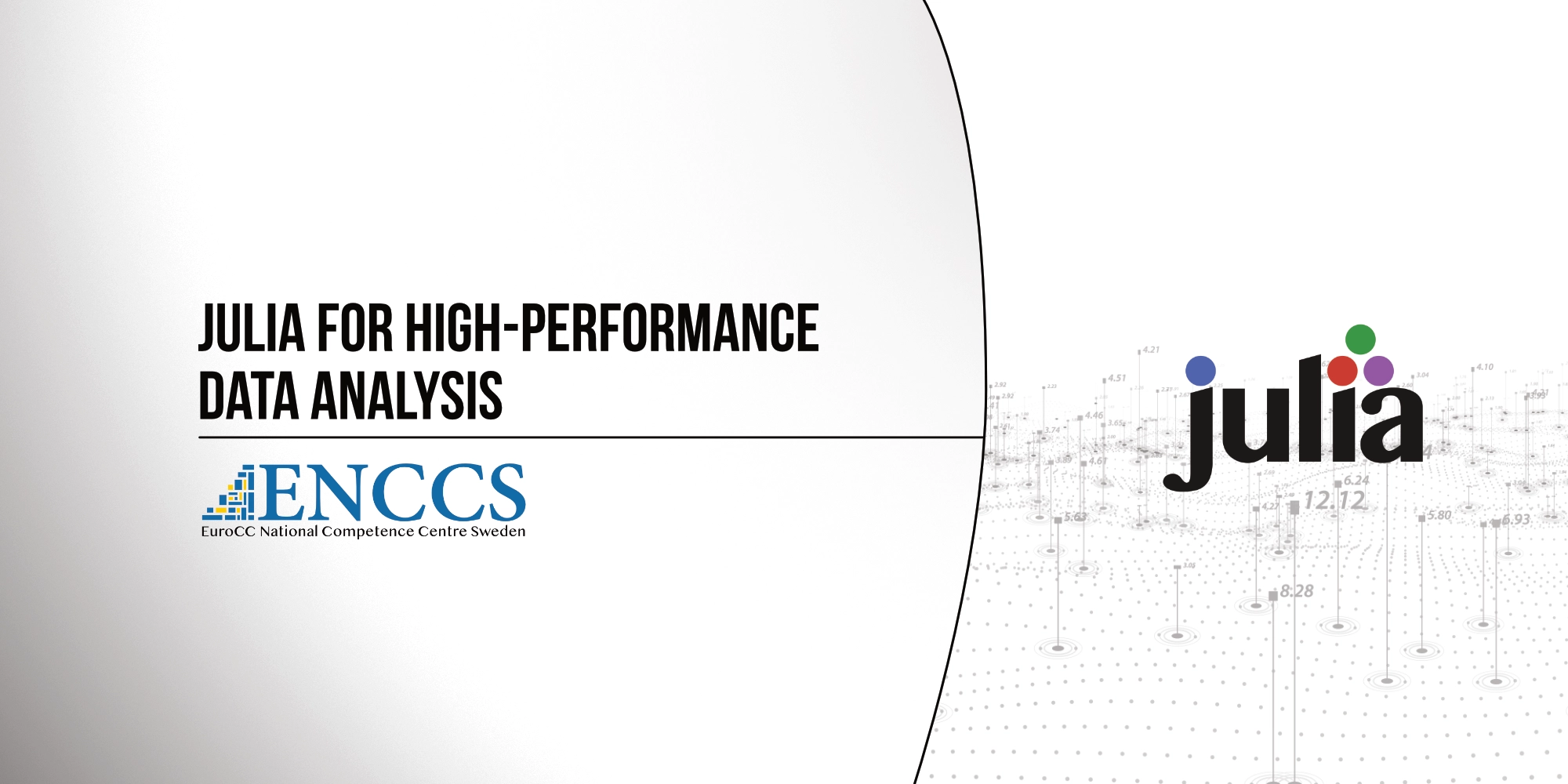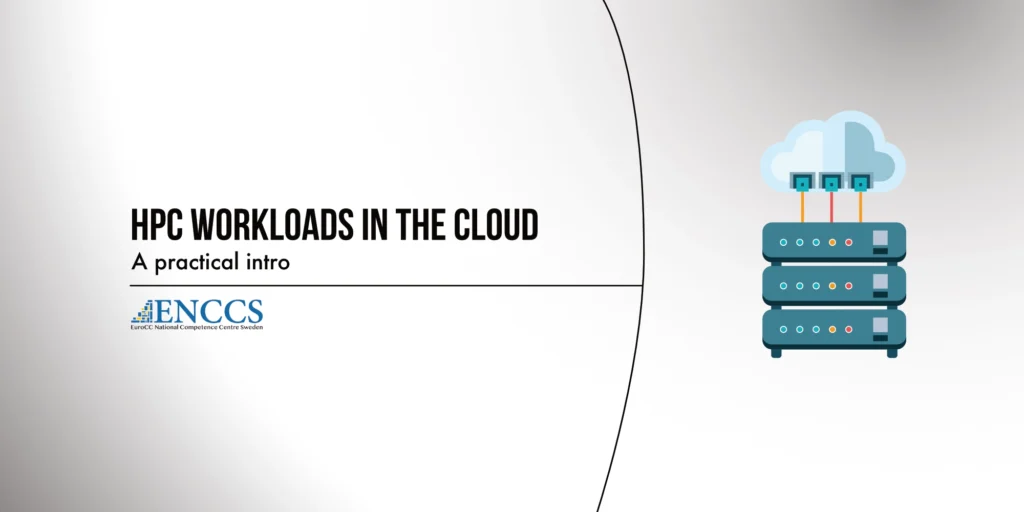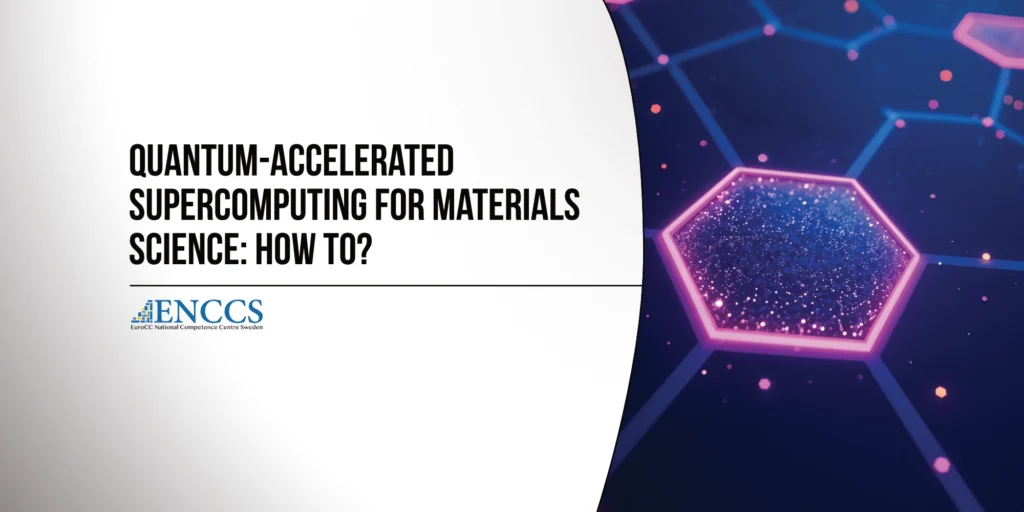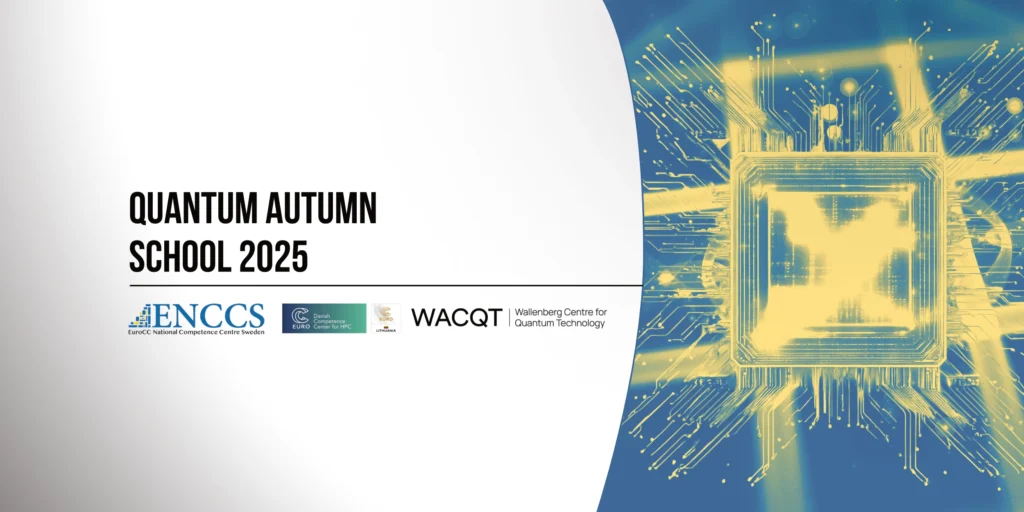
- This event has passed.
Julia for High-Performance Data Analysis (Online)
Feb 4 • 09:00 – Feb 7 • 12:00 CET

General introduction
Welcome to the online workshop on Julia for High-Performance Data Analysis on Feb. 4-7 (2025). Julia is a modern high-level programming language that is fast (on par with traditional HPC languages like Fortran and C) and relatively easy to write like Python or Matlab. It thus solves the two-language problem, i.e. when prototype code in a high-level language needs to be combined with or rewritten in a lower-level language to improve performance. Although Julia is a general-purpose language, many of its features are particularly useful for numerical scientific computation, and a wide range of both domain-specific and general libraries are available for statistics, machine learning, and numerical modeling.
Who is this workshop for?
This lesson material is targeted toward students, researchers and developers who:
- are already familiar with one or more programming languages (Julia, Python, R, C/C++, Fortran, Matlab, …)
- need to analyze big data or perform computationally demanding modeling or analysis
- want to develop high-performance data science software but prefer to stay within a productive high-level language.
Prerequisites
- Experience in one or more programming languages.
- Familiarity with basic concepts in linear algebra and machine learning.
- Basic experience with working in a terminal is also beneficial.
- Participants are expected to install Julia, VSCode and Zoom before the workshop starts
Key takeaways
Julia for High-Performance Data Analysis starts by briefly covering the basics of Julia’s syntax and features, and then introduce methods and libraries which are useful for writing high-performance code for modern HPC systems. After attending the workshop, you will:
- Understand how to analyze large datasets efficiently in Julia using statistical methods.
- Be comfortable with Julia’s syntax, in-built package manager, and development tools.
- Understand core language features like its type system, multiple dispatch, and composability.
- Be able to write your own Julia packages from scratch.
- Know how to perform various linear algebra analysis on datasets.
- Be productive in analyzing and visualizing large datasets in Julia using dataframes and visualization packages.
- Be familiar with several Julia libraries for visualisation and machine learning.
Agenda
| Time | Contents | |
|---|---|---|
| Day 1 (Feb. 4) | Welcome | |
| 09:10-09:20 | Motivation | |
| 09:20-09:50 | Julia syntax | |
| 09:50-10:00 | Break | |
| 10:00-10:50 | Special Julia features | |
| 10:50-11:00 | Break | |
| 11:00-11:50 | Developing in Julia | |
| 11:50-12:00 | Package ecosystem | |
| Day 2 (Feb. 5) | 09:00-09:20 | Motivation (Julia for data analysis) |
| 09:20-10:10 | Data formats and data frames | |
| 10:10-10:20 | Break | |
| 10:20-11:10 | Linear algebra | |
| 11:50-11:55 | Q & A | |
| Day 3 (Feb. 6) | 09:10-10:00 | Working with data, saving current setup |
| 10:00-10:10 | Break | |
| 10:10-11:00 | ML, clustering & classification, DL | |
| 11:00-11:10 | Break | |
| 11:10-11:50 | Exercises | |
| Day 4 (Feb. 7) | 09:10-10:00 | Non-linear regression |
| 10:00-10:20 | Exercises | |
| 10:20-10:30 | Break | |
| 10:30-11:20 | Scientific machine learning | |
| 11:20-11:50 | Exercises | |
| 11:50-12:00 | Conclusions and outlook |
More events & contact
Check out more upcoming events from ENCCS and our European network at https://enccs.se/events.
For questions regarding this workshop or general questions about ENNCS training events, please contact training@enccs.se
Schedules can change!
To ensure that everyone has the opportunity to participate, we kindly request that you let us know as soon as possible if you are unable to attend an event after registering.
Please send us an email at training@enccs.se to cancel your attendance.
We understand things can change, but repeated cancellations without notice may unfortunately result in your name being removed from future event registration lists.
Regulations
Due to EuroCC2 regulations, we CAN NOT ACCEPT generic or private email addresses. Please use your official university or company email address for registration.
This training is for users who live and work in the European Union or a country associated with Horizon 2020. You can read more about the countries associated with Horizon2020 HERE.










